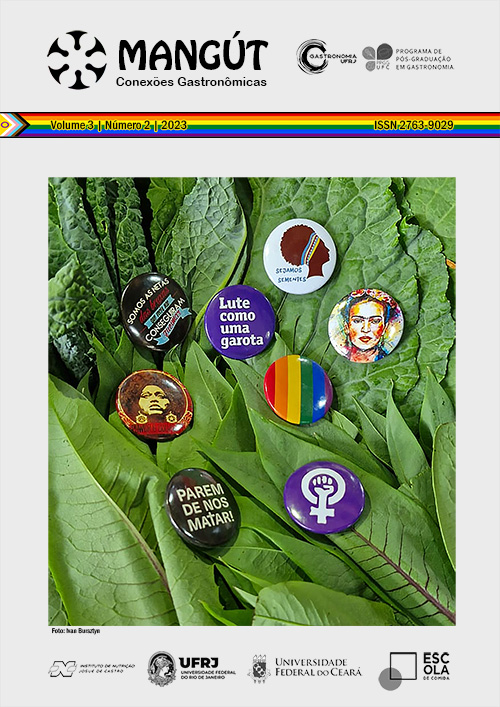Professional qualification course of the TransGarçonne Extension Program: an extensionist experience report
DOI:
https://doi.org/10.70051/mangt.v3i2.58005Keywords:
Gastronomy, LGBTQIAP+, Hospitality, University Extension, EducationAbstract
Transgender people face numerous barriers to qualifying for the formal job market. This study aims to present and discuss aspects of the experience of a bachelor of gastronomy student at the Federal University of Rio de Janeiro (UFRJ) involved in an extension project focused on enhancing the qualifications of trans people. The program is part of the educational initiatives within the TransGarconne program. The experience report details a class within the qualification course designed for employment in the hospitality sector, encompassing skills relevant to the service industry, such as wait staff professionalism. The data were derived from the planning and execution of classes in 2022. A qualitative analysis was conducted using field notebook notes and documentation. We aim to critically examine issues related to the pedagogical strategies employed and the limitations and challenges faced by the team due to the complexity of the work undertaken. We emphasize the necessity for improvement and underscore the significance of extension projects in providing practical training, enabling the university to fulfill its role in mitigating social inequalities.
Downloads
Downloads
Published
Issue
Section
License
Copyright (c) 2024 Bruno Bastos Ribeiro da Silva, Renato Monteiro

This work is licensed under a Creative Commons Attribution 4.0 International License.
Autores que publicam nesta revista concordam com os seguintes termos:
- Autores mantém os direitos autorais e concedem à revista o direito de primeira publicação, com o trabalho simultaneamente licenciado sob a Licença Creative Commons Attribution que permite o compartilhamento do trabalho com reconhecimento da autoria e publicação inicial nesta revista.
- Autores têm autorização para assumir contratos adicionais separadamente, para distribuição não-exclusiva da versão do trabalho publicada nesta revista (ex.: publicar em repositório institucional ou como capítulo de livro), com reconhecimento de autoria e publicação inicial nesta revista.
- Autores têm permissão e são estimulados a publicar e distribuir seu trabalho online (ex.: em repositórios institucionais ou na sua página pessoal) a qualquer ponto antes ou durante o processo editorial, já que isso pode gerar alterações produtivas, bem como aumentar o impacto e a citação do trabalho publicado (Veja O Efeito do Acesso Livre).



